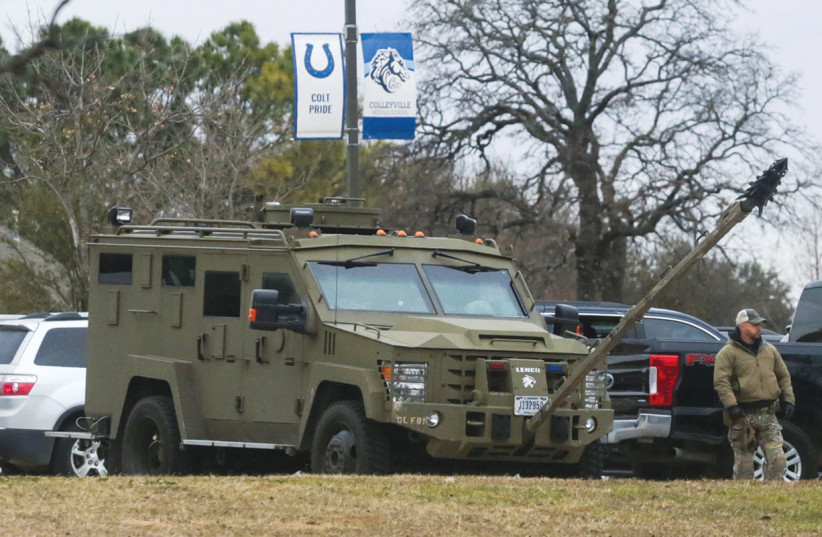WASHINGTON – Dozens of Jewish Federations and Community Relations Councils across the US sent a letter on Monday to the Senate Foreign Relations Committee urging its leaders to hold a hearing on Prof. Deborah Lipstadt’s nomination to serve as special envoy to monitor and combat antisemitism.
The 96 Jewish organizations called on the lawmakers to hold a hearing on her nomination “without delay” in light of the recent hostage crisis in Colleyville, Texas. This attack, they wrote, “was a stark reminder of the constant and ever-increasing threat of antisemitism that members of the Jewish community encounter daily around the world.”
“It is undeniable that a rising tide of antisemitic speech and physical attacks have targeted the Jewish community across the world, creating the dangerous preconditions to attacks on Jewish individuals and institutions abroad and at home,” the letter said.
“For over a decade, the special envoy to monitor and combat antisemitism has been critical in urging foreign governments to protect their Jewish communities, establish national coordinators to address antisemitism, and develop and implement policies to combat antisemitism and hate,” it said.
“This latest, horrific attack makes clear that the Senate must expeditiously confirm this position so that America’s diplomatic corps has an able leader to combat the global threat of antisemitism,” it added. “We urge you to hold a hearing on the nomination of Professor Deborah Lipstadt in the Committee on Foreign Relations for the post of State Department special envoy to monitor and combat antisemitism without delay.”

It has been more than six months since President Joe Biden announced his intention to nominate Lipstadt, and the committee is yet to schedule a vote on her nomination. Republican James Risch of Idaho, ranking member of the Senate Foreign Relations Committee, in November said he was concerned about previous Lipstadt tweets in which she was critical of Republican lawmakers.
“We cannot allow this crucial position to remain unfilled, and we fully expect this nomination will advance quickly once there is a hearing,” said Darcy Hirsh, managing director for public affairs at Jewish Federations of North America.
“The cross-border nature of the Colleyville attack shows that global antisemitism threatens our local communities,” said Elana Broitman, JFNA senior vice president for public affairs. “The committee can take a major step to help secure Jewish institutions and communities at home and abroad by advancing this hearing.”
In July, Biden formally nominated Lipstadt as the next US ambassador to combat and monitor antisemitism. Lipstadt is a professor of modern Jewish history and Holocaust studies at Emory University in Atlanta and was the founding director of the Institute for Jewish Studies. She is currently on the boards of the Jewish Forward Advisory Committee and the American Jewish Joint Distribution Committee and serves as a judge for the Rohr Prize in Jewish Literature.
During the administration of former president Bill Clinton, she served in several roles at the United States Holocaust Memorial Museum. Lipstadt is the author of eight books, including The Eichmann Trial, Holocaust: An American Understanding; Antisemitism: Here and Now; and Beyond Belief: The American Press and the Coming of the Holocaust, 1933–1945.
Denying the Holocaust: The Growing Assault on Truth and Memory, published in 1994, led British writer and Holocaust-denier David Irving to sue her for libel in London in 2000. The trial resulted in a victory for Lipstadt, who in 2005 wrote her memoir, History on Trial: My Day in Court with a Holocaust Denier.
